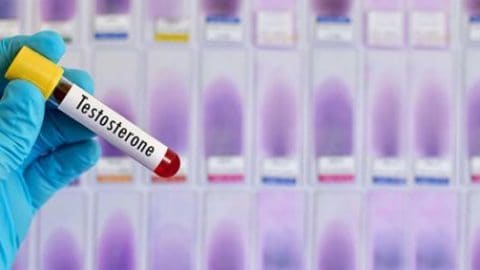The Institutes Of Medicine – commissioned by The DOD – just put out a paper I found very interesting looking at the impact of Nutrition and Traumatic Brain Injury TBI). The paper was called:
The report outlines key nutritional interventions that may be of value to TBI. What I found particularly interesting was the identification of creatine (among others) as a possible nutrient of benefit. I have written about creatine as a possible Neurological Protection to brain injury and other insults:
A growing number of studies have found that creatine can protect the brain from neurotoxic agents, certain forms of injury and other insults.
Several in vitro studies found that neurons exposed to either glutamate or beta-amyloid (both highly toxic to neurons and involved in various neurological diseases) were protected when exposed to creatine.3 The researchers hypothesized that,
“… cells supplemented with the precursor creatine make more phosphocreatine (PCr) and create larger energy reserves with consequent neuroprotection against stressors.”
More recent studies, in vitro and in vivo in animals, have found creatine to be highly neuroprotective against other neurotoxic agents such as N-methyl-D-aspartate (NMDA) and malonate.4
Another study found that feeding rats creatine helped protect them against tetrahydropyridine (MPTP), which produces parkinsonism in animals through impaired energy production. The results were impressive enough for these researchers to conclude,
“These results further implicate metabolic dysfunction in MPTP neurotoxicity and suggest a novel therapeutic approach, which may have applicability in Parkinson’s disease.“5
Other studies have found creatine protected neurons from ischemic (low oxygen) damage as is often seen after strokes or injuries.6
Yet more studies have found creatine may play a therapeutic and or protective role in Huntington’s disease7, 8 as well as ALS (amyotrophic lateral sclerosis).9 This study found that:
“… oral administration of creatine produced a dose-dependent improvement in motor performance and extended survival in G93A transgenic mice, and it protected mice from loss of both motor neurons and substantia nigra neurons at 120 days of age. Creatine administration protected G93A transgenic mice from increases in biochemical indices of oxidative damage. Therefore, creatine administration may be a new therapeutic strategy for ALS.”
This is only the tip of the iceberg showing creatine may have therapeutic uses for a wide range of neurological disease as well as injuries to the brain
The above is also dated and there’s been additional research since I wrote the above.
Some topics covered where creatine may be of benefit:
* Sarcopenia
* Improve in brain function of healthy and damaged brains
* Modulate inflammation.
* Diseases effecting the neuro muscular system, such as muscular dystrophy (MD)
* Wasting syndromes/muscle atrophy
* Fatigue
* Gyrate atrophy
* Parkinson’s disease
* Huntington’s disease and other mitochondrial cytopathies
* Neuropathic disorders
* Various dystrophies
* Myopathies
* Various brain pathologies.
* May increasing growth hormone (GH) levels, to those seen with exercise
* Reduce homocysteine levels
* Possibly improving the symptoms of Chronic fatigue Syndrome
* Improve cardiac function in those with congestive heart failure
As well as the obvious athletic uses most associate with creatine
IOM Report Summery:
Nutrition and Traumatic Brain Injury: Improving Acute and Subacute Health Outcomes in Military Personnel
Released:
April 20, 2011
Type:
Consensus Report
Topics:
Food and Nutrition, Veterans Health
Activity:
Nutrition, Trauma, and the Brain
Board:
Food and Nutrition Board
Military personnel, especially those in combat zones, face a distinct risk of traumatic brain injury (TBI). The injuries can range from mild to severe, and their effects can appear within minutes or hours—or sometimes weeks or even years later. Although estimates of incidence and prevalence are elusive, some estimates suggest that TBI has accounted for up to one-third of combat-related injuries. TBI also is a major problem among civilians, especially those who engage in certain sports, with an estimated 1.6 to 3.8 million sports-related TBIs occurring annually. Despite such health tolls, the mechanisms and damaging effects of TBI on the brain are not fully understood.
While some research has explained these mechanisms of injury, new information suggests that nutritional interventions could help in treating or even providing resilience against TBI.
In this light, the Department of Defense (DoD) asked the IOM to review the potential role of nutrition in the treatment of and resilience against TBI. Given the complexity of TBI and the current gaps in scientific knowledge, the IOM could identify only one action that can immediately improve treatment efforts: early feeding to patients with severe TBI. Research has shown that feeding the severely injured soon after an injury is known to help in decreasing mortality. In addition, new information suggests that nutritional interventions could help in treating or even providing resilience against TBI. The IOM identified a number of other possible benefits for specific nutritional interventions and recommends that the DoD and other collaborates conduct more research.
Will Brink is the owner of the Brinkzone Blog. Will has over 30 years experience as a respected author, columnist and consultant, to the supplement, fitness, bodybuilding, and weight loss industry and has been extensively published. Will graduated from Harvard University with a concentration in the natural sciences, and is a consultant to major supplement, dairy, and pharmaceutical companies.
His often ground breaking articles can be found in publications such as Lets Live, Muscle Media 2000, MuscleMag International, The Life Extension Magazine, Muscle n Fitness, Inside Karate, Exercise For Men Only, Body International, Power, Oxygen, Penthouse, Women’s World and The Townsend Letter For Doctors.
He’s also been published in peer reviewed journals.
Will is the author of the popular e-books, both accompanied by private members forum access , Bodybuilding Revealed & Fat Loss Revealed.
You can also buy Will’s other books on Amazon, Apple iBook, and Barnes and Noble.





This is very interesting, Wil. I suppose this gives me one more reason to use creatine monohydrate 🙂
Read about the benefits of creatine to protect brain from full impact of brain trauma waaaaay back in early 2000. I thought this news would be HUGE, especially to combat athletes(boxers, MMA fighters, football players etc.) and am amazed that it never garnered much attention–especially given all the noise medical professionals are making about brain damage these days in contact sports. People are still sleeping on this in my opinion. Too bad.
It is too bad. But ignoring overwhelming evidence that some supplements may be of value for some conditions, a time honored habit among many medical professionals and the media.
I’m using the protein flapjacks with the creatine in them and now I’m glad I use it. This is a brilliant news. I think creatine is possibly the best sup out there, since taking it, I’ve noticed my performance has gotten so much better. Love the stuff!